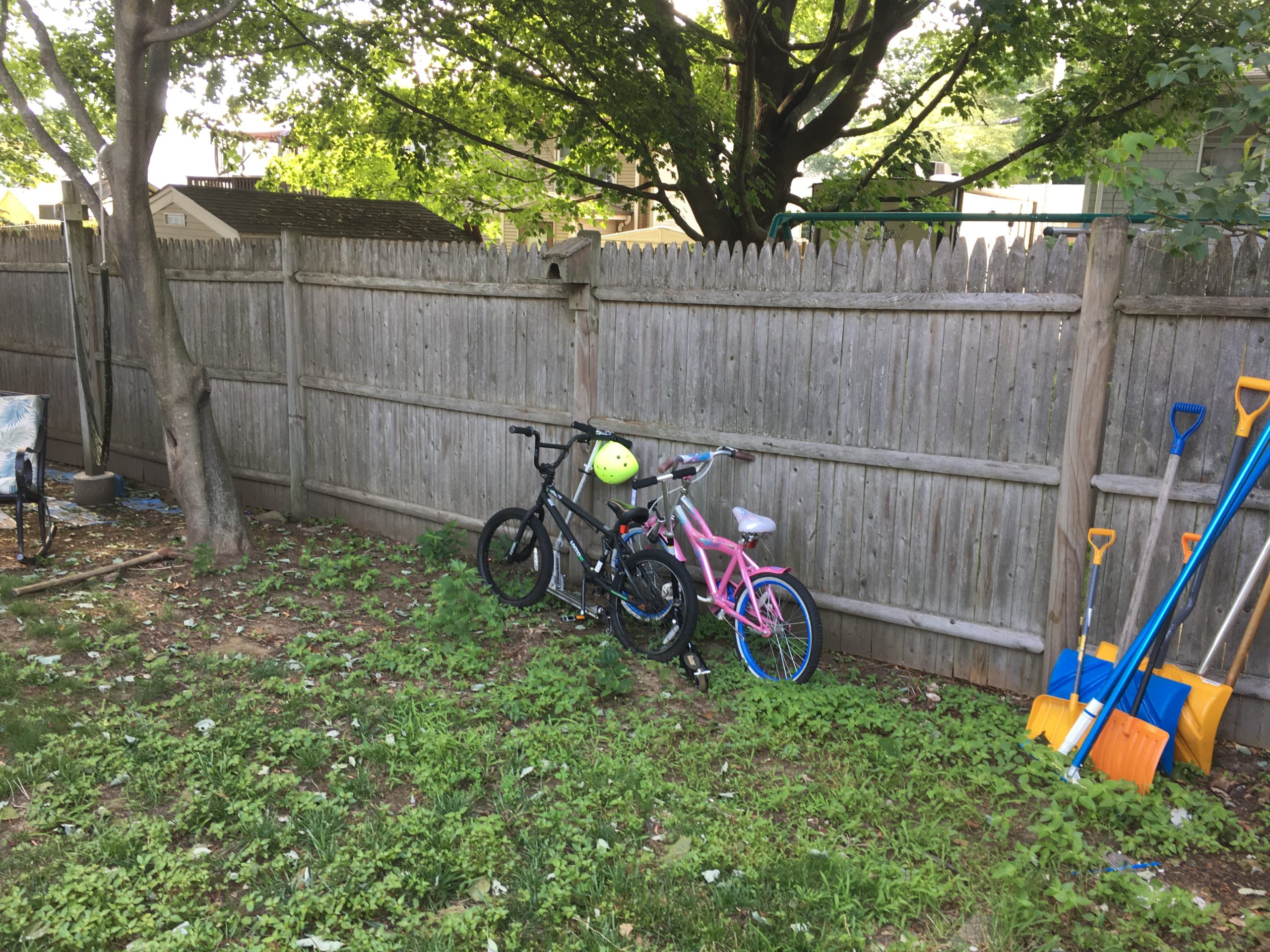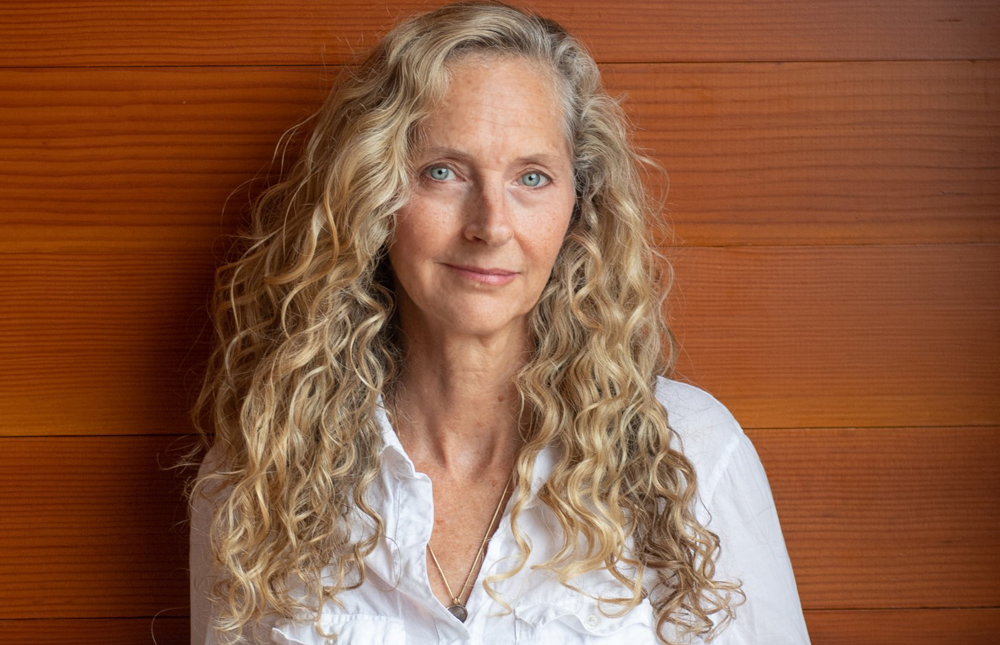Episode 188: From Your Parents To Foster Care In A Split-Second; Lily King’s ‘Writers & Lovers’
Mary’s life changed drastically when she became the foster parent for four grandnieces and nephews. This week on NEXT, we explore the ways foster care is succeeding and struggling in Rhode Island and Massachusetts. And for families looking to adopt, we hear about the most affordable option — and other routes that could break the bank. Plus, bestselling author Lily King weaves parts of her life into her new novel, Writers & Lovers.
Living In Limbo: Foster Families And Their Stories

The backyard at the house Mary shares with her foster children. (Sofia Rudin/The Public’s Radio)
A kid’s experience in foster care can vary from state to state. In Rhode Island, when child protection workers remove children from their homes, the state looks for relatives or close family friends who might take them in. About two-thirds of all Rhode Island foster children live with kinship foster parents. And often, there’s little time for the family to prepare for the transition.
That was Mary’s experience. Back in 2017, Mary was an empty-nester — nearly 60 and planning to move to South Carolina with her husband. Then, in a moment, Mary was faced with a decision: Could she take in her four grandnieces and nephews? More than two years later, Mary is divorced and still caring for the kids in Rhode Island as they deal with the trauma of being removed from their home, while also working toward forgiveness.
“Living in Limbo” is a series from The Public Radio’s Sofia Rudin.
Recent Report Finds Massachusetts Foster Care Still Struggling
In 2014, a boy under supervision of the Massachusetts Department of Children and Families went missing and was later found dead. When Governor Charlie Baker took office the following year, he made a commitment to fix the state’s foster care system. Since then, the budget for DCF has grown and staffing has also gone up. But according to a report released by the department in January, issues persist.
The Cost Of Adopting
It can be incredibly expensive to adopt a kid. But adopting a child out of foster care is one of the most affordable approaches, said freelance writer David Dodge, who reported on the costs in his article “What I Spent To Adopt My Child” for The New York Times Parenting website.
NEXT Wants To Hear From You
We’re interested in hearing from listeners connected to the foster care system in any New England state. Maybe you’ve been through the system yourself, or are a foster parent with lessons to share. Tell us your story by recording your comment on your smartphone and emailing it to us at next@ctpublic.org.
Maine Novelist Lily King Weaves Parts Of Her Own Story In ‘Writers & Lovers’

Lily King’s novel “Writers & Lovers” was released March 3. (Winky Lewis)
Lily King is the author of The New York Times’s bestselling novel, Euphoria. Now she has a new book out, Writers & Lovers, about loss, love and creative ambition. It’s fiction, but one romantic plot line closely mirrors her own experience falling in love at a writing residency.
In the book, 31-year-old Casey Peabody is struggling. Her mother just died. Peabody recently broke up with someone she loves. And on top of that, she has a mountain of student loan debt. She is waitressing at a restaurant in Cambridge, Mass., while trying to finish her first novel.
The Washington Post praised the novel as “wonderful, witty, heartfelt.”
You can find King on her book tour in the coming days and weeks.
About NEXT
NEXT is produced at Connecticut Public Radio
Host/Producer: Morgan Springer
Executive Editor: Vanessa de la Torre
Senior Director: Catie Talarski
Contributors to this episode: Sofia Rudin.
Guests: Matt Stout, David Dodge and Lily King.
Music: Todd Merrell, “New England”, “Crazy” and “Zero Gravity” by Goodnight Blue Moon, “Nowhere to Run” by Billy Wylder, “South Dakota” by The Wolff Sisters and “King Vice” by Binger.
New to NEXT? You can find every episode or one you missed within our archives.
We want your feedback! Send critiques, suggestions, questions, and ideas to next@ctpublic.org. Help us spread the word! If you like what you hear, rate and review us on iTunes.
Follow us on Facebook and Twitter.
NEXT is produced at Connecticut Public Radio
